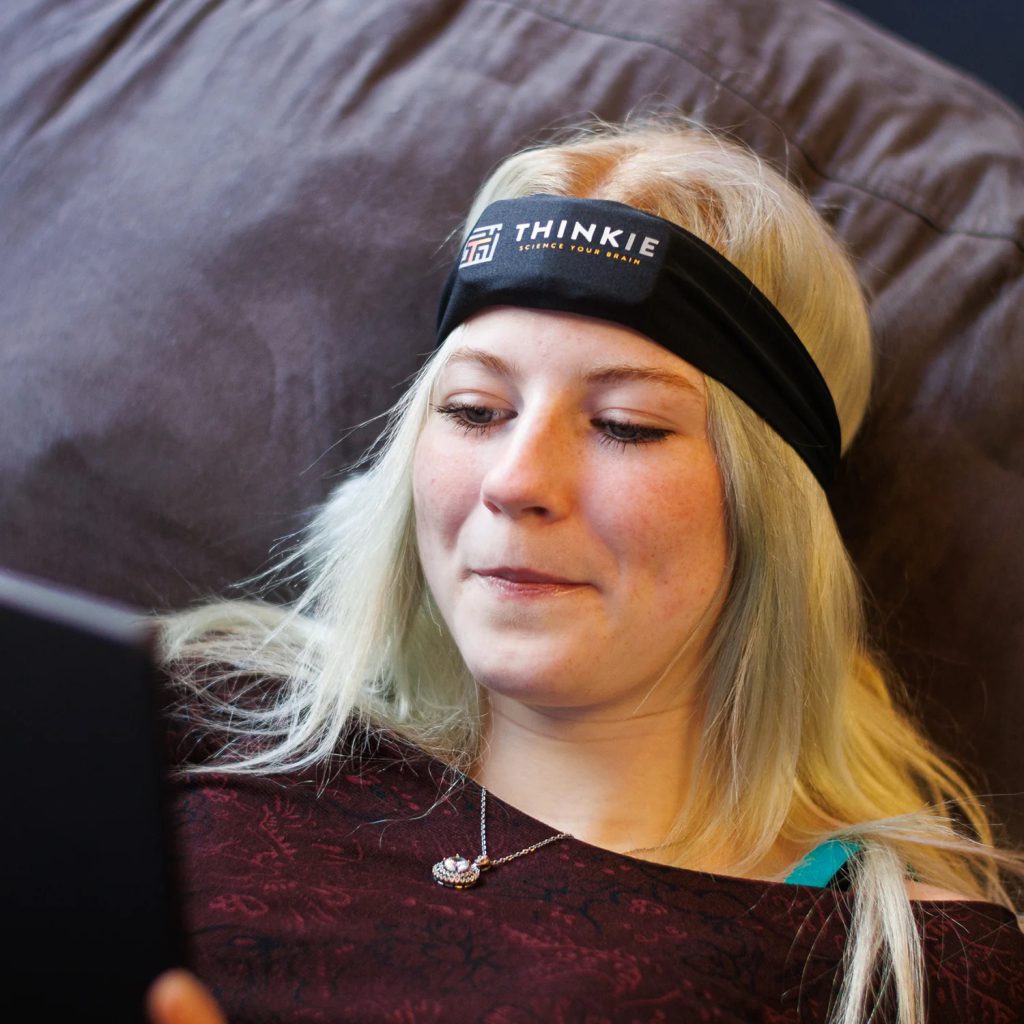Thinkie, a Seattle-area startup, has created a wearable headband device that monitors brain activity while users play games on a tablet or smartphone. This wellness device can track metrics such as mental speed, memory, concentration, attention, and prediction. The accompanying app provides real-time feedback on which parts of the brain are active while engaging in various mental games. The device can also be worn without the app to determine which everyday activities are most effective at training the brain, such as working on puzzles or playing musical instruments.
The $250 device from Thinkie utilizes Functional Near-Infrared Spectroscopy (fNIRS) technology, which measures changes in blood flow in the prefrontal cortex using light. The company claims that their system is backed by neuroscientists for scientifically-proven results and provides studies on its website that research cognitive training using fNIRS tech. Thinkie also offers a $15/month subscription for the app, which can be used for free without the device.
Initially targeting senior living communities, Thinkie has now started rolling out its brain monitoring device to consumers. The company has also joined AARP’s AgeTech Collaborative startup accelerator program to further expand its reach. Thinkie is a subsidiary of Japanese conglomerate Mitsui & Co. and a sister company to NeU Corporation, a technology partner of Mitsui. Led by CEO Kota Ageiwa, a former business development manager at Mitsui, Thinkie aims to promote brain health and wellness through its innovative wearable technology.
Ageiwa emphasized the importance of keeping the brain active, stating that just like working out keeps the body in shape, maintaining brain activity is key to staying sharp and living a fulfilling life. Thinkie’s small team of less than ten people is based in Bellevue, Wash., where they continue to develop and promote their brain monitoring device and app. The company’s focus on cognitive training and brain health shows its commitment to helping individuals improve mental skills and overall well-being through wearable technology designed by neuroscientists.


